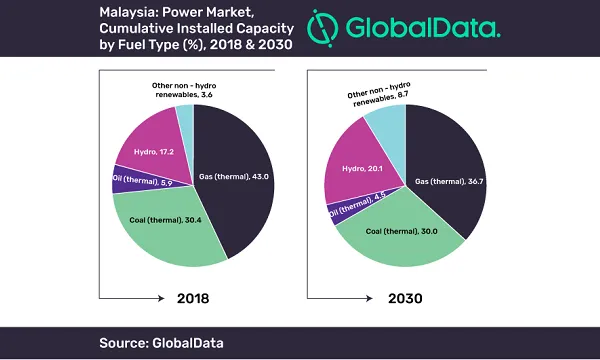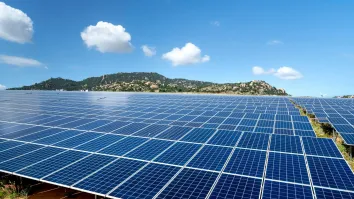
Malaysia's thermal power capacity to grow by 5GW in 2019-2030
Its renewables market remains immature and public resistance to nuclear power is strong.
Thermal power capacity in Malaysia is expected to show a significant growth of 5GW during 2019–2030 in order to meet the increasing consumption, and non-hydro renewable power is estimated to follow with a 2.8GW capacity addition during this period, according to analytics firm GlobalData.
Due to an immature renewable power market and strong public resistance to the proposed adoption of nuclear power, the country will continue to embrace thermal power during 2019–2030 whilst also adding small amounts of renewable power capacity each year, the firm’s latest report said.
Harshavardhan Reddy Nagatham, power analyst at GlobalData, commented, “Progressive economic reforms and a continuous increase in industrial activity are expected to boost economic progress in Malaysia, driving the country’s GDP at a compound annual growth rate (CAGR) of 4.8% during the forecast period. In addition, an increasing population will result in a significant increase in electricity consumption.”
Malaysia is a net importer of electricity. GlobalData noted that the country is primarily dependent on thermal resources for electricity generation and, although it possesses substantial fuel reserves, it faces the risk of declining energy security.
As of 2018, gas-fired thermal power dominated the country’s power portfolio, with a share of 43% of the total installed capacity. Coal and oil followed with a share of 30.4% and 5.9%, respectively. Whilst hydropower held a 17.2% share, other renewables together accounted for less than 4% of the total capacity.
The government had considered adopting nuclear power in order to establish energy independence and at the same time avoid greenhouse gas (GHG) emissions. The government also set up a Nuclear Power Development Steering Committee and deployed three working groups to plan and coordinate the development of nuclear power.
“However, due to wide public resistance over the idea, the plans did not materialize and may not see traction anytime soon. This leaves renewable power as the only other option to generate electricity without increasing GHG emissions,” GlobalData said.
The share of thermal power is estimated to decrease slightly from 79.2% in 2018 to 71.2% in 2030; whilst that of non-hydro renewable power is estimated to increase from 3.6% in 2018 to 8.7% in 2030.
Nagatham concluded, “Despite the growth in the share of renewable power in Malaysia, the country will continue to embrace and develop its thermal power capacity in order to meet the growing demand for electricity.”



















 Advertise
Advertise





